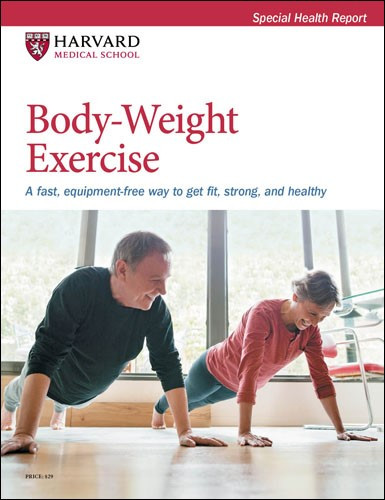"Fatty" muscles may point to a higher risk of heart disease
In the journals
- Reviewed by Howard E. LeWine, MD, Chief Medical Editor, Harvard Health Publishing; Editorial Advisory Board Member, Harvard Health Publishing

An observational study published online Jan. 20, 2025, by the European Heart Journal found that intermuscular fat — fat stored between muscle fibers — may increase a person's risk of heart disease.
Researchers recruited 669 participants with no evidence of significant coronary artery disease. Everyone's heart function was tested with cardiac PET scans. CT scans measured the amounts of fat and muscle in their chest. From these measurements, researchers calculated the participants' "fatty muscle fraction" — the ratio of intermuscular fat to total muscle plus total fat — to quantify how much fat was stored within each person's muscles.
Participants then were followed for approximately six years. Afterward, scientists found that people with more muscle fat were more likely to have developed abnormal blood flow in the smallest vessels that supply blood to the heart, a condition known as coronary microvascular dysfunction (CMD). Even a small increase in fatty muscle fraction was linked to higher risks. For every 1% increase, CMD risk increased by 2%, and the risk for heart disease rose 7%. These increases were independent of other heart disease risk factors, such as body mass index or fat around the heart or in the liver, which suggests that the CMD risks could affect people with normal weight. Still, it's too soon to determine the usefulness of measuring intermuscular fat in any individual.
Image: © Vladimir Vladimirov /Getty Images
About the Author

Matthew Solan, Executive Editor, Harvard Men's Health Watch
About the Reviewer

Howard E. LeWine, MD, Chief Medical Editor, Harvard Health Publishing; Editorial Advisory Board Member, Harvard Health Publishing
Disclaimer:
As a service to our readers, Harvard Health Publishing provides access to our library of archived content. Please note the date of last review or update on all articles.
No content on this site, regardless of date, should ever be used as a substitute for direct medical advice from your doctor or other qualified clinician.
















